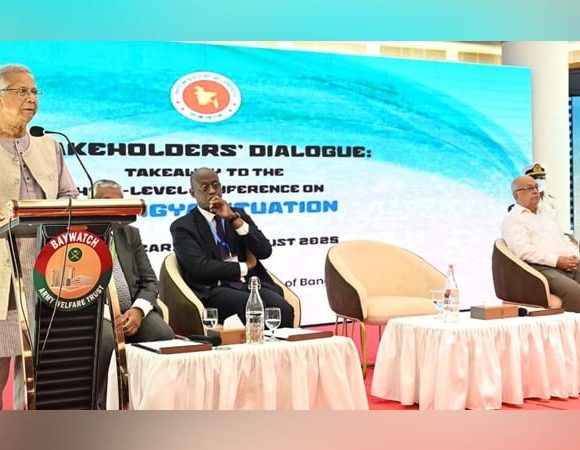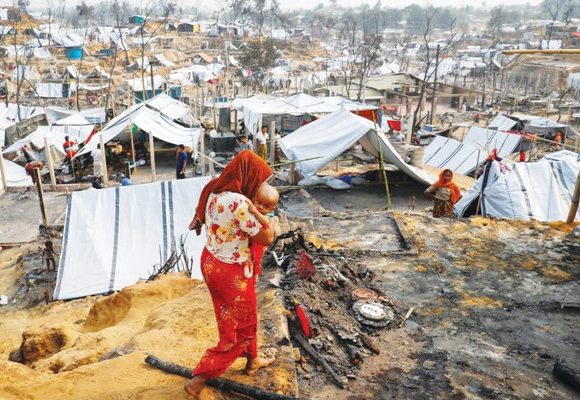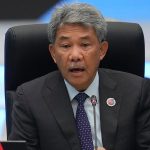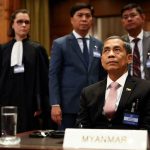Dhaka believes India, China can resolve Rohingya crisis: Bangladesh FM

NEWS DESK
Repatriation with civil rights and dignity is the eventual solution to Rohingya crisis while India’s intensified engagement alongside Chinese mediation as regional powers is crucial to accomplish the complicated task, Foreign Minister Dr Hasan Mahmud said in Dhaka on Sunday.
“Repatriation (of the Rohingyas) is the only solution,” he told a seminar on Rohingya crisis staged by Overseas Correspondents Association of Bangladesh (OCAB) coinciding with its 45th founding anniversary at the Jatiya Press Club.
The minister added: “The regional powers like India and China are vital . . . if we can ensure their enhanced engagement, we believe, the crisis could be resolved.”
Mahmud said creating facilities for Rohingyas livelihood inside their makeshift camps or their meager third country relocation could do little to address the crisis while these might appear “counterproductive” and stressed focused international and regional pressures for their repatriation.
Foreign ministry officials said only few hundred Rohingyas were relocated to third countries including western nations while Mahmud said such symbolic relocation could send a wrong message to Rohingyas who might lose their hope to return to their homeland in Myanmar’s Rakhine province.
Mahmud said US assistant secretary of state Donald Lu during his recent visit gave some suggestions to handle the crisis “but I don’t want to disclose it right now”.
Foreign relation experts and senior journalists who cover the crisis also spoke on the occasion which also marked the revival of the forum of Dhaka-based journalists working for foreign media outlets.
Speaking as the chief guest, Mahmud said the Myanmar authorities are willing to start the Rohingya repatriation process to minimise the global pressure being mounted on the country.
Depicting the long-standing Rogingya crisis, the foreign minister said the crisis started after the World War-II and it deepened after the partition of India in 1947.
After the 2017 military crackdown in Rakhine State, Hasan Mahmud said, Prime Minister Sheikh Hasina opened the Bangladesh border for forcibly displaced Rohingyas and she allowed around 7,00,000 Rohingyas in Bangladesh.
“(Currently) I believe around 1.3 million Rohingyas are staying at Rohingya camps in Cox’s Bazar,” he said.
The foreign minister said Bangladesh has taken the path of diplomacy to put pressure on Myanmar in repatriating its nationals, while the Gambia filed a case with the International Criminal Court (ICC) against Myanmar.
The Gambia has informed Bangladesh that the case is going in right direction and a positive result will come soon to this end, he said.
“We hope that the verdict of the case will be delivered in favour of Bangladesh. Once the verdict is declared, more global pressure will be mounted on Myanmar,” he said, adding that when Rohingya repatriation process was about to start, conflict situation got worsened in Myanmar.
Nearly 700 members of the Burmese Border Guard Police and soldiers have so far fled to Bangladesh amid intensifying fighting between junta troops and Arakan Army rebels in neighbouring Rakhine state, he said.
About global funding for Rohingyas, Hasan Mahmud said the funding declined last year. “But, we hope that the funding for Rohingyas will increase this year due our efforts. And this fund is spent in a transparent way,” he added.
Former state minister for foreign affairs and incumbent member of parliamentary standing committee on foreign affairs ministry Shahriar Alam spoke on the occasion as a special speaker.
OCAB president Nazrul Islam Mithu moderated the seminar and its former president Farid Hossain presented the keynote paper while Professor Dr Delwar Hossain and Dr Md Touhidul Islam of Dhaka University joined the event as panel discussants.
The Daily Observer editor Iqbal Sobhan Chowdhury, former OCAB president Nadeem Qadir, Bangladesh Sangbad Sangstha (BSS) managing editor Anisur Rahman, senior journalists Shafiqul Karim Sabu, Shawkat Mahmud and Abdul Jalil Bhuiyan and OCAB general secretary Julhas Alam also spoke.
Speaking on the occasion, Alam said, in 2017, Prime Minister Sheikh Hasina gave shelters to the persecuted Rohingyas on humanitarian ground but she knew its consequences too.
So, he said, Prime Minister Sheikh Hasina placed a four-point proposal before the 74th United Nations General Assembly (UNGA) in 2019 aiming to resolve the protracted Rohingya crisis.
“Our eyes are open…we are taking inputs from all concerned to this end,” Shahriar added.
Prof Delwar Hossain said the Myanmar, which originated the Rohingya crisis, is now in a crisis as ethnic conflicts have been escalated across its territory.
About the security threat being posed by Rohingyas in camps located in Cox’s Bazar, he said, Arakan Rohingya Salvation Army (ARSA) is a major concern there, while drug smuggling and human trafficking are prevailing in the camps.
Stressing the need for mounting pressure on Myanmar, Prof Delwar said only global pressure on Myanmar is not enough in repatriating Rohingyas, while active role of China is crucial too in this regard.
“We have to avoid armed provocation (from Myanmar). We must continue negotiations … Rohingya issue should not get untouched (in multilateral forums). It should get more global attention,” he said.
Dr Touhidul Islam said the host community members in the locality, where the Rohingya camps are located, are minority now as displaced people outnumbered the local people.
“Until the Rogingyas are repatriated, the problems of the host community must be addressed. The issue should remain alive at national, regional and international forums,” he said.
After attending the seminar Foreign Minister Hasan Mahmud held a meeting with Myanmar Ambassador in Dhaka U Aung Kyaw Moe at the foreign ministry.

















